Lakeland Behavioral Health System provides focused, gender-specific care to ensure that adolescents and teens ages 8 to 13 who have been struggling with mental health disorders receive the guidance and support that they need to achieve long-term recovery.
Benefits of Cognitive Behavioral Therapy
Cognitive behavioral therapy, which is commonly referred to as CBT, has proved to be effective at improving the lives of children and adolescents who have struggled with mood and/or behavior issues. CBT is a goal-oriented therapeutic approach that focuses on the connection between thoughts and behaviors.
In CBT sessions at Lakeland Behavioral Health Hospital, children and adolescents gain insights into the ways that negative thought patterns can lead to self-defeating actions. Working with experienced and compassionate professionals, young people then learn to develop healthier ways of thinking, and practice transferring these positive thoughts into more productive and satisfying behaviors.
When your son or daughter participates in cognitive behavioral therapy sessions with us, he or she will develop skills and strategies that can be applied to a wide variety of situations throughout his or her lifetime. As is the case with inpatient care itself, CBT is a short-term experience that can yield a lifetime of positive results.
Our Nurturing Environment
Psychiatric and medication evaluation is an on-going process spearheaded by a psychiatrist with many years experience dealing with children/adolescents. Trained therapists at Lakeland’s mental health treatment center in Missouri provide both individual and family therapy at least once every seven days. The program’s treatment team meets with each patient to discuss the patient’s progress at least once a week. An individual time of staff encouragement and self-expression by the patient is provided to each patient at least once a shift, or more as necessary. Daily groups provide a structured time for therapists to teach the patient to deal with issues such as anger management, family issues, self-image, abusive issues, self-harm and development and use of coping skills. Other group activities at Lakeland’s treatment center encourage self-expression through arts and crafts, recreation, and music. The patient’s artistic efforts are displayed on the unit to help instill a sense of pride and accomplishment. All program efforts are aimed towards successfully reintegrating the patient back into either their home or a public environment, and providing them with the skills to continue positive growth in the future.
Clinical Treatment Team:
- Psychiatrist
- Registered Nurse
- Social Service Worker
- Social Service Supervisor
- Behavioral Health Technician
Intensive Therapies & Evaluations
Inpatient programming at Lakeland Behavioral Health System is designed to provide children and adolescents with intensive, comprehensive services that will promote stabilization and prepare them for long-term success.
An essential element of our inpatient program is the thorough assessment process that all young people complete prior to receiving treatment. This detailed evaluation enables us to identify and address all of the issues that have been undermining your child’s ability to achieve to his or her greatest potential.
Depending upon your son or daughter’s specific strengths, needs, and goals, his or her personalized treatment plan may include medication management services, individual therapy, group therapy, family therapy, and a variety of experiential therapies.
We will continue to monitor and evaluate your child’s progress throughout his or her time in our care, and will adjust his or her treatment plan as needed.
Group Therapy Topics
Community Group – informs patients of expectations of the program and ways to obtain the highest possible points (mentions keeping their room clean, making the bed, it’s a no-touch facility, putting their name on Needs List to sign up for ID bands, doing laundry, how to ask for assistance, etc.). Patients are told what their points are from the previous day which affects what phase they are on and whether or not they have earned the right to leave the unit for meals and RT.
Anger Management – teaches patients how to identify triggers, ways to manage their anger on the unit, making plans to manage anger at home, signs and symptoms that tell the patient she/he is getting angry and how to stop it before it gets out of control.
Self Image – helps the patient develop a more positive self-image. Helps them recognize that they have value as an individual and identify what their strengths are. Helps them deal with low self-esteem and grow beyond the barriers of low self-esteem.
BTS Life Skills – Deals with abuse issues, managing flash backs. Teaches the patient how to protect themselves from further abuse in the future.
DD – Deals with addictive habits and personalities – including self-harm practices (cutting, burning themselves, etc.).
Coping Skills Group – identifies the need for coping skills and teaches the patient how to develop coping skills that will help them maintain control of their actions and emotions.











